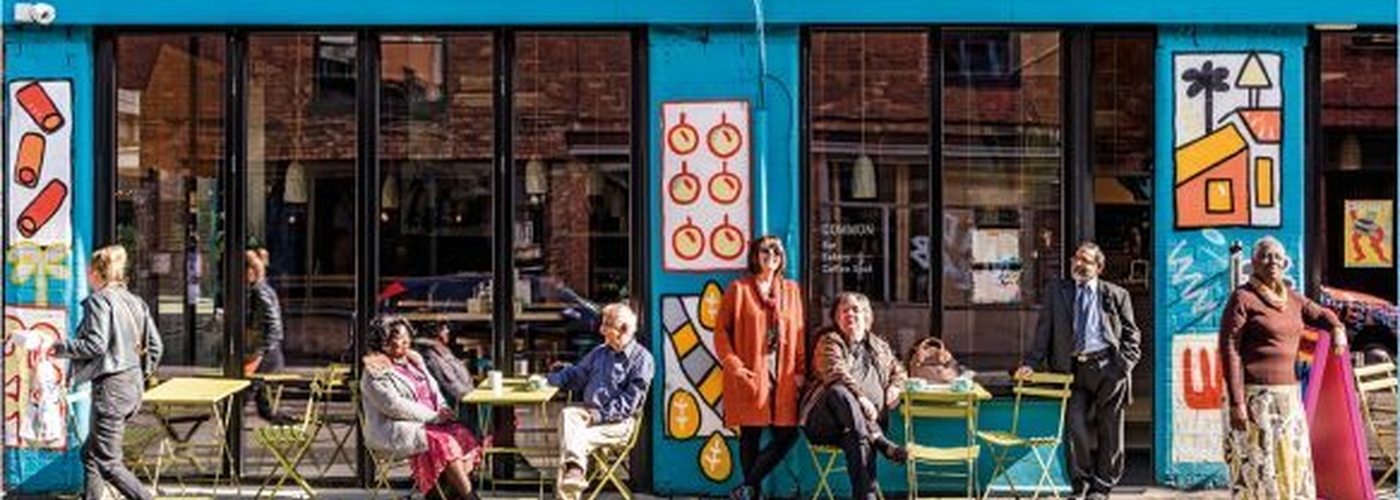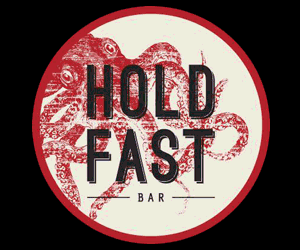What it is really like to grow old in the city? We look at the ways creatives are challenging the stereotypes
It seems like minutes ago that FaceApp, the craze for people applying filters to find out what they would like when they are older, was all the rage. The main motivation seemed to be finding out if you would still have a certain silver fox or vixen appeal in later life, but it did get me thinking about what will change as I grow older. Will I still be a city dweller, for example? As the city centre attracts young tech workers, what can Manchester offer the older person? The stereotype is that once you get past a certain age, you don a cardie and head off to the seaside or a market town.
Ageism affects us all - now is the time to change the way we think and talk about ageing
However, that picture is looking increasingly out of date. When forecaster Arup says: “The ageing of the world population will be one of the defining megatrends of this century”, I don’t think they mean messing about with an app and putting the results on Facebook: in fact the number of people aged 60 and over as a proportion of the global population will double by 2050. By then, there will be more older people than children in the population for the first time in human history. Urbanisation is another 'megatrend', therefore we will be seeing (and, if we are lucky, taking our place amongst) an ever-increasing amount of older people who live in cities. Cities like Manchester.
Manchester is actually ahead of the curve as the UK’s first age-friendly city – it’s even been accredited by the World Health Organisation as such. You might be surprised to learn that Manchester has in fact had a ‘strategy’ regarding old people in place for the last 10 years now. Ambition for Ageing is a £10.2 million programme across the whole of Greater Manchester aimed at creating more age-friendly places and empowering people to live fulfilling lives as they age. As commentators claim that current politics is widening the generational divide, it is heartening to see so many working to cross it.
Manchester’s record in investing in older people has made it the natural home for a new centre for Creative Ageing, announced on the UN's International Day of Older Persons. A consortium of museums and galleries, plus other agencies, have been awarded £250,000 by the Baring Foundation in order to support the cultural sector to become more age-inclusive. Esme Ward, director of Manchester Museum said: “It’s time to build momentum and for imaginative, brave thinking and action if we are going to address ageism and realise the potential of a creative ageing society.”
On the same day Andy Burnham, Richard Leese and Brenda Warrington were among civic leaders who signed an open letter committing to making Manchester a great place to grow older. Burnham said: “We know this includes having a modern and positive narrative on ageing that emphasises the contribution older people make. Ageism affects us all - now is the time to change the way we think and talk about ageing.”
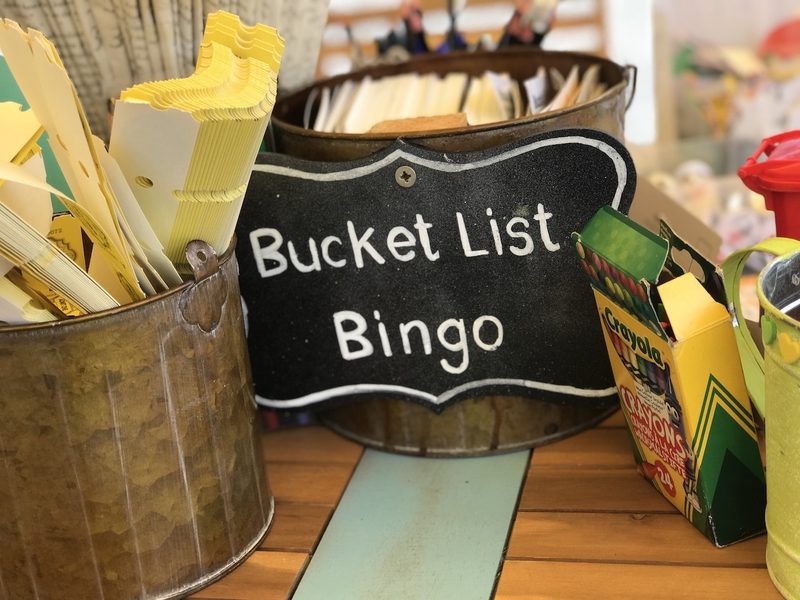
Challenging stereotypes is the focus of Talking About My Generation, a campaign involving people aged 50 and over from across Greater Manchester who want to show what it is really like to grow older in the city and beyond. Reporters meet regularly to produce a newsletter and podcast, highlighting stories of older people such as 87-year-old boxer Bill or features on topics such as Pride in Ageing; a programme which aims to ensure that Greater Manchester becomes one of the best places for LGBT people to grow older.
Pauline Smith, reporter for the central Manchester area, wrote: 'People see older people wrinkly and 'past it'…or ‘invisible’ is the word that springs to mind. I want to show that older people are not frail and vulnerable, like so many pictures used in age-related adverts.'
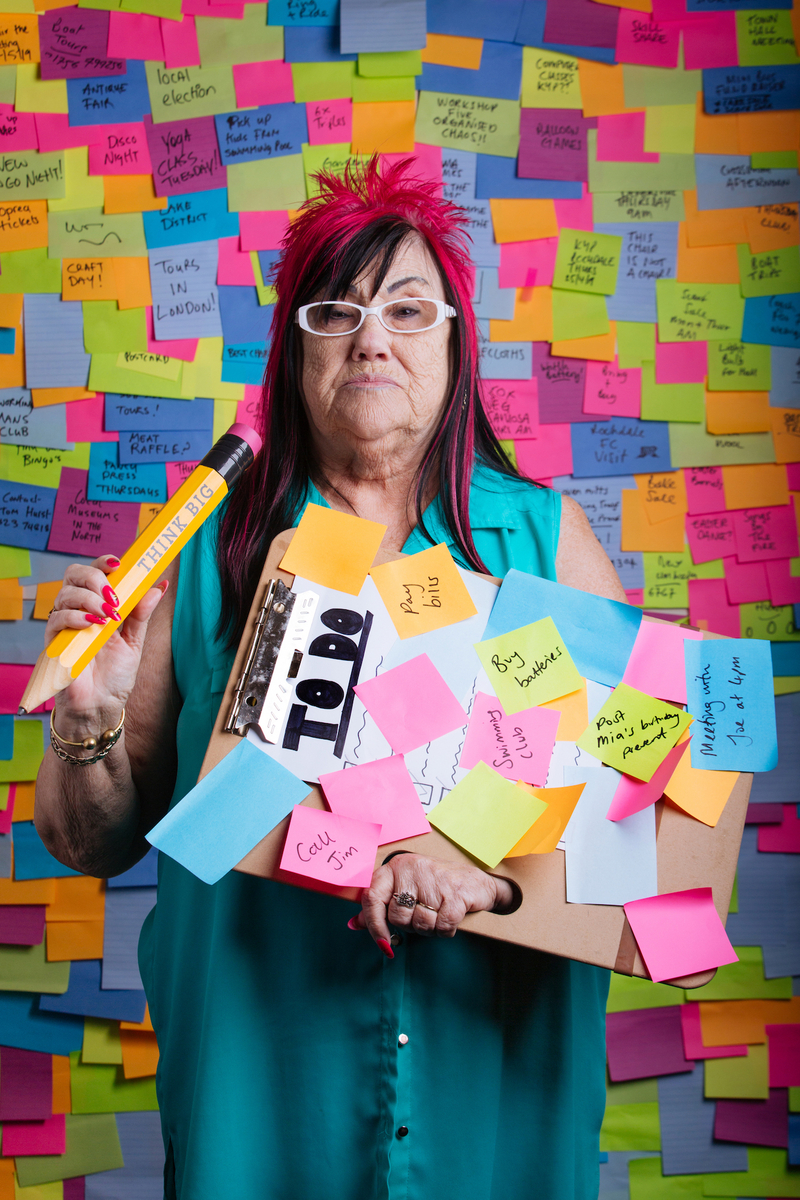
These words could have equally described another arts production I visited recently. The Golden Years Caravan by Art with Heart promised to “disrupt and push back against the stereotypes of cruises and compression stockings.” Part of the experience, which also includes a mini cinema in a repurposed caravan and a ‘bucket-list bingo’, is Old Stock, New Stock; a photographic exhibition by Joe Oli Smith and women from the Apna Ghar day centre. Instead of cheesy Saga-style retirement shots, we have vibrant imagery of real older people doing what they love.
The output of the exhibition could have been quite different. Rachel Moorhouse, director of Art with Heart, told me: “We showed groups the current stock images, we talked about their lives, what they were doing and how they wanted to be represented. We were prepared that we might end up with some gritty realism of people waiting at the doctors or sat on the bus. We might have ended up with a film about loneliness and social isolation. But when we sat down with the groups that really wanted to be represented in a positive way and talk about what they were doing. So Emily, with the pink hair, that is the way she wanted to be portrayed on the day. She is very sassy and fabulous as well but she gets so much done. She is often the one at the council meetings and steering groups and saying ‘You need to do more for us’.”
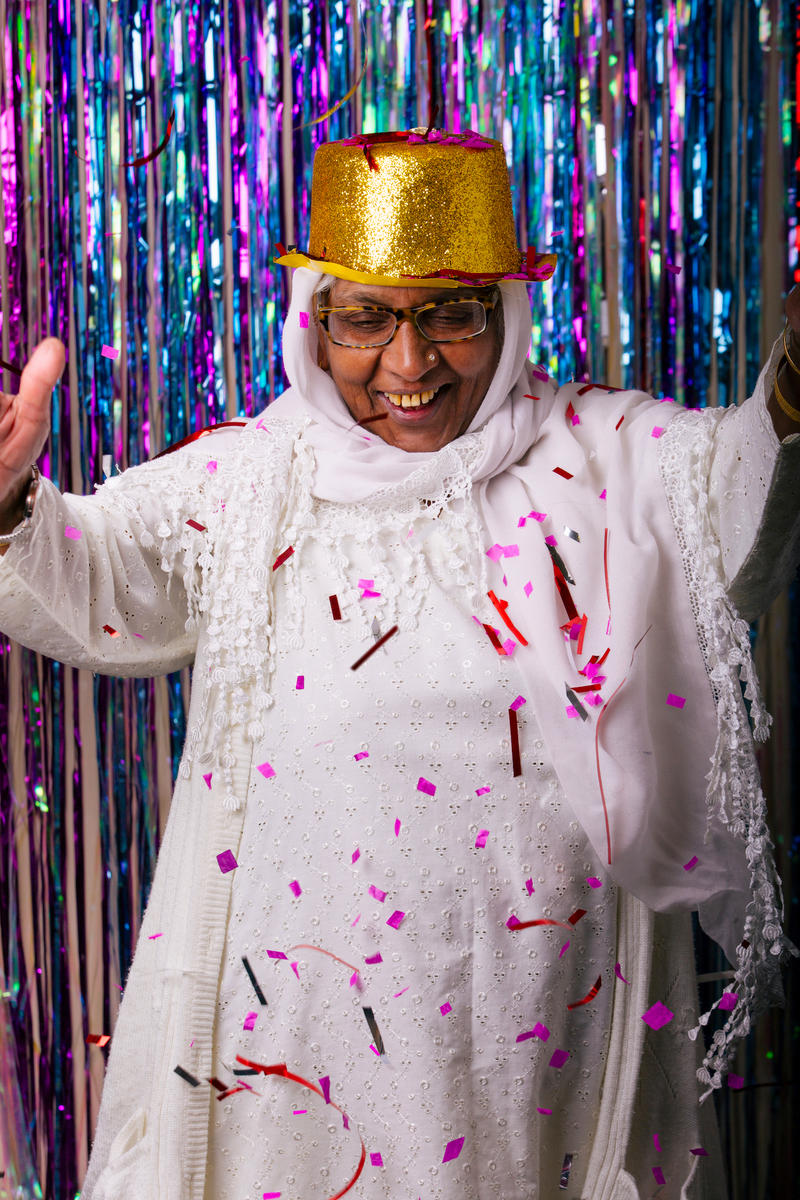
Manchester Cares, the organisation that worked with Art with Heart on Golden Years Caravan, emphasises that we need to take any patronising attitudes out of the equation. It calls itself a 'community network of young professionals and older neighbours hanging out and helping one another in our rapidly changing city.' Instead of thinking of it as a ‘befriending’ programme, where a younger person donates their time to the older person, Manchester Cares has a 'friendship-matching scheme', arranging meetings between people who genuinely share interests.
Take David and Norman, who met and bonded over a shared love of Manchester United, or Jim and Becky, who both wanted to meet people who lived close by. On the Manchester Cares blog Becky said, “Even though there are 65 years between us, our outlook and attitude to life is really similar and it’s so inspirational for me to get to know someone who has lived their life with such similar morals and principles to my own. Through our friendship I have also gained a whole new perspective on my life and felt supported, which is so powerful when it comes to life decisions.”
Manchester Cares points to social isolation as a particular problem that needs addressing. Populations in cities change the most rapidly of any area, leaving some people who have lived all their life in a particular areas feeling as if they don’t know anyone around them. To address this, the group organises activities at art galleries, theatre trips, film nights, boxfit, cocktail making and more – which to be honest sounds like the kind of social schedule any millennial would envy.
This morning, older neighbours were welcomed in by the lovely team @AustralasiaMcr.
The group had breakfast and a good chin-wag with the staff. Sandra (69) expressed 'we've had such a laugh' and nobody wanted the social club to end.
HUGE thanks to everyone @LivingVentures ! pic.twitter.com/d5d7WJoqYt
— Manchester Cares (@ManchesterCares) September 26, 2019
One activity that stood out to me was the ‘chippy tea’ at the Hip Hop Chip Shop in Ancoats (my own dad, 69, visited earlier in the week and the verdict was "great tunes"). Hip Hop Chip Shop founder Jonathan 'Ozzie' Oswald told me why he decided to get involved with Manchester Cares: “It just comes down to being aware of your surroundings. There are a lot of changes happening in Ancoats and you don't want the generations who already live here to be forgotten, if anything they should be at the forefront of your mind. I'd imagine it can be pretty daunting if you're a bit older to go into some of the new businesses round here. We're just putting out a welcome mat. There's too much unwarranted division in this world, if we all just take the time to chat to our neighbours I think we can all benefit from it... and what better way to do it than over some chips with a brew?”
Art, football and, possibly most importantly, chips and a brew - what could be a more Manchester way of crossing the generational divide?
View this post on InstagramLast night in Ancoats, older and younger people came together to meet the brilliant folk at @thehiphopchipshop for a cuppa, chippy and a catch up 💜 Ancoats is changing by the day – and while that’s exciting for many, with new spaces & places popping up all the time, for some (particularly older people, many of whom have lived here their whole lives), it can be isolating if you feel you don't have a ticket to the party. 💜 That’s why it’s brilliant to meet organisations like this – who are inviting in their older neighbours in an attempt to help everyone feel part of the buzz of the city, and helping to reduce loneliness & generational divides. 💜 A huge thanks to Ozzie and the team at the @thehiphopchipshop for a great night and delicious food!
A post shared by ManchesterCares (@manchestercares) on
Manchester: Age-Friendly City
Age-Friendly Manchester is a partnership involving organisations, groups and individuals across the city playing their part in making Manchester a great place to grow older.
Ageing Equally is a research project focusing on what makes a good place in which to grow older for people who belong to minority communities. You can understand more about its research projects here.
The Whitworth has a regular Age Friendly Programme
The National Football Museum has a fortnightly Sporting Memories group where you can share memories and meet other older sports fans.
The Royal Exchange runs the The Elders Company for older people in Manchester who want to feel connected to new people and ideas.
You can join Manchester Cares' Love Your Neighbour Programme here





